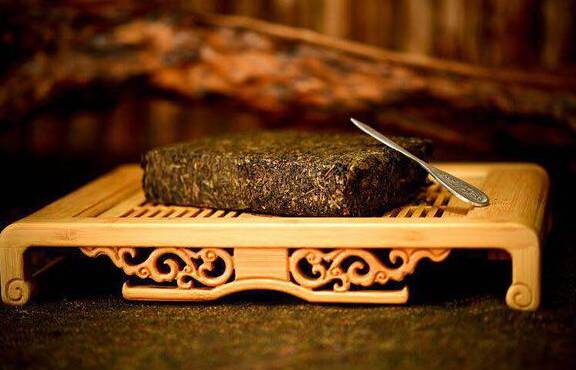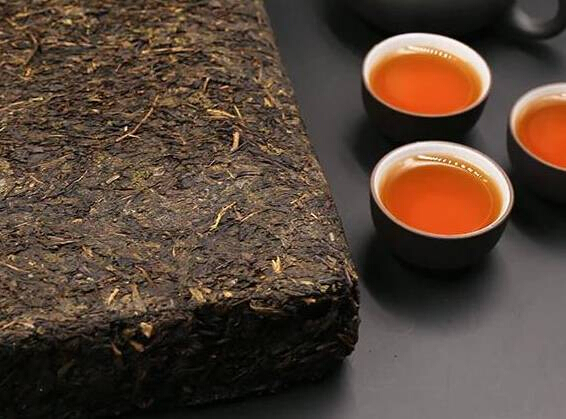"Why does this tea have mold? Is it spoiled?" Many consumers have similar questions when buying black tea. In fact, this mold-like substance is called "golden flowers" by industry insiders and is one of the distinctive features of Anhua black tea.
The Fuller the Bacteria, the Higher the Tea Quality
Upon opening a brick of Fuzhuan tea, you'll notice these tiny golden "flowers" covering both the inside and outside of the tea brick, resembling small mold spots that might give the impression of spoilage.
It is explained that this bacteria is called "Eurotium cristatum," which is not mold but a beneficial strain cultivated in temperature-controlled environments during tea processing, known for its health benefits like lowering blood pressure, cholesterol, and blood sugar. However, since Anhua black tea has not been popular in Hubei for long, many consumers misunderstand it upon first encounter.

Fuzhuan tea is regarded as the "introductory tea" to Anhua black tea, with its "golden flowers" being its most notable feature. The raw material for Fuzhuan tea is typically third-grade black tea leaves, which are relatively coarse. However, the mellowness of the tea after processing is closely related to the growth of these golden flowers. Generally, the more abundant and plump the bacteria appear, the better the tea's nutrition and flavor. However, since this bacteria is alive, improper storage conditions in terms of humidity and temperature can cause the "golden flowers" to shrink or even disappear over time.
Fuzhuan Tea Must Contain Tea Stems
Many people prefer green tea, and if green tea contains stems, it is considered inferior. Consequently, some locals apply the same standard when purchasing black tea. However, this does not apply to the black tea category.

Except for Tianjian, Gongjian, and Shengjian loose teas made from buds, all other black teas contain stems, especially Fuzhuan tea. "Tea stems are relatively thick, creating gaps during the compacting process, which are ideal for the growth of 'golden flowers.' Thus, controlling the stem content is a technical aspect of Fuzhuan tea production. Typically, the industry standard for stem content in Fuzhuan tea is around 12%."
However, exceeding this standard is considered cost-cutting, as stems are free while tea leaves cost money. Adding more stems reduces production costs. Consumers can check the brewed tea leaves to judge if the stem content is appropriate.